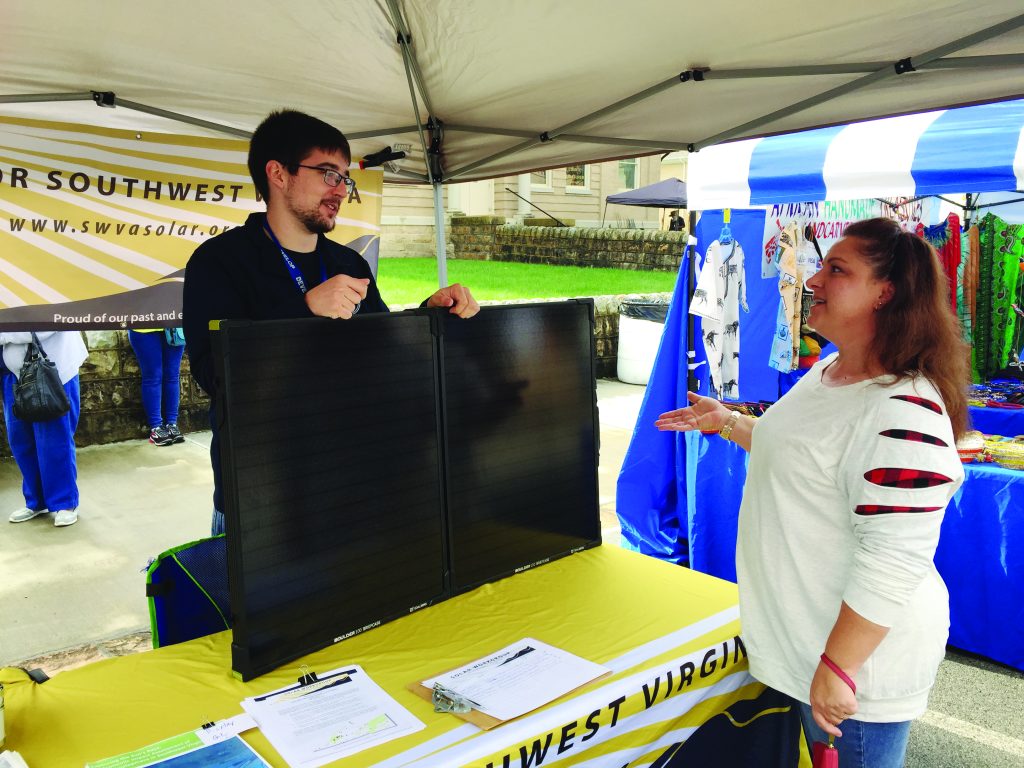Lawsuit seeks to protect candy darter from West Virginia coal hauling
FOR IMMEDIATE RELEASE
January 10, 2024
CONTACT
Meg Townsend, Center for Biological Diversity, (971) 717-6409, mtownsend@biologicaldiversity.org
Olivia Miller, West Virginia Highlands Conservancy, (304) 704-2997, director@wvhighlands.org
Dan Radmacher, Appalachian Voices, (540) 798-6683, dan@appvoices.org
Jessica King, Sierra Club, jessica.king@sierraclub.org
WASHINGTON, D.C. — Conservation groups sued the U.S. Forest Service today for failing to protect streams in the Cherry River watershed from the harmful effects of coal hauling in the Monongahela National Forest. Coal hauling imperils the critically endangered candy darter as well as nearby habitat for other endangered species.
Filed in the U.S. District Court for the District of Columbia, today’s lawsuit faults the Forest Service for allowing a private coal company to haul oversized coal loads, coal mining supplies and equipment — including explosives — on gravel roads in the Cherry River watershed. This has led to sediments and other harmful pollutants entering the rivers and harming the candy darter.
The Cherry River watershed is one of the last strongholds of this vibrant freshwater fish, which is known as the “underwater rainbow” because of its bright green and orange stripes.
“I’m appalled by the Forest Service’s blatant disregard for the candy darter and the Cherry River watershed,” said Meg Townsend, senior freshwater species attorney at the Center for Biological Diversity. “These beautiful little fish are on the knife’s edge of extinction, and they can’t withstand any more harm from the coal industry.”
Today’s suit shows that the Forest Service violated the Endangered Species Act by allowing these activities without ensuring they won’t harm endangered species. It also asserts that the Forest Service violated the National Environmental Policy Act.
In 2021 the Forest Service issued a permit allowing the South Fork Coal Co. to haul oversized coal loads and conduct extensive road clearing and construction. This includes tree cutting, regrading and widening the road, and removing and replacing culverts on FS 249, a gravel road on steep slopes above South Fork Cherry River and Laurel Creek. The permit also allows the company to haul mining supplies, equipment and explosives on FS 223, a gravel road along a direct tributary to North Fork Cherry River.
These streams within the Cherry River watershed are designated as the candy darter’s critical habitat by the U.S. Fish and Wildlife Service, meaning any harm to the streams is likely to harm the fish.
Coal hauling has already resulted in harmful sediments reaching the darter’s critical habitat. In March and April of 2022, the mining company was cited for violations leading to excess sedimentation during a time of year when candy darters are spawning in South Fork Cherry River. Inspections by the Forest Service found that the company was not properly maintaining the roadways and documented sedimentation escaping the roadway and crushed and blocked culverts in tributaries to South and North Fork Cherry rivers.
The company was also cited in November 2023 for violations related to spreading raw coal on the roadway. Spreading coal in this manner and fugitive coal dust from coal trucks can lead to toxic chemicals and heavy metals such as selenium and lead reaching the rivers and harming the darter. Every day there are coal trucks on the road increases the risk that an accident will spill large quantities of coal, which would be catastrophic for the candy darter.
Heavy coal truck traffic is also a potential threat to the endangered Indiana and northern long-eared bats, which rely on the area’s streamside forests for roosting and feeding during summer months and are sensitive to noise and tree-cutting.
“The Forest Service has permitted these harmful activities without considering that they might destroy the Cherry River watershed forever,” said Olivia Miller, program director of the West Virginia Highlands Conservancy. “Not only could they harm the endangered species in the streams and forests of the watershed, but they could also lethally contaminate surface and ground waters, harming all species that depend on clean water for survival — including people.”
“Endangered species like the candy darter are the canary in the coal mines,” said Erin Savage, senior program manager with Appalachian Voices. “Communities all along the Cherry River, and the Gauley further downstream, depend on clean water. The Forest Service needs to correct its mistake in letting this coal company run roughshod over the watershed for the sake of wildlife and people alike.”
“The South Fork Coal Company should never have been permitted by the Forest Service to haul coal, supplies, and heavy equipment through the vulnerable Cherry River watershed, home of rare high elevation red spruce forest and precious, endangered species like the candy darter,” said Alex Cole, senior organizing representative at Sierra Club. “Through multiple violations, South Fork has established a track record of environmental harm, and the Forest Service must remedy their mistake by revoking the company’s permit as soon as possible.”



